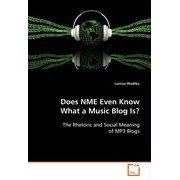
Released in digital format on August 21 (and to be released on physical format with some bonus tracks at the much later date of October 27), Bloc Party's latest album, Intimacy, had become one of those albums I forgot to anticipate or expect. Its release blindsided me a bit. I've been a fan of Bloc Party since before the release of their first album, Silent Alarm (which was released considerably later in Canada than in the UK) - I consider them the best of the bunch that all seemed to appear on the music scene at the same time (Kaiser Chiefs, Maximo Park, Franz Ferdinand). Their jagged, jerky post-punk guitars and windmilling drums paired with often vicious and/or political lyrics stood out from the rest of the pack, and I took them far more seriously than their contemporaries. And despite their sophomore album, A Weekend in the City, being a bit of directional change (more electronics and more personal lyrics), I still really enjoyed them - the commentary on life in London in the 21st century was just as political and meaningful as direct commentary on broader global themes. With Intimacy, it seems Bloc Party have taken the next logical step in evolution: even more electronic influences (which was hinted at with non-album single Flux) and even more personal lyrics ostensibly about singer Kele Okereke's recent breakup. If Silent Alarm was an abstract comment on a global situation and A Weekend in the City was a more localized remark on 21st century youth in the English capital, Intimacy brings the focus down even closer as it comments on Okereke's personal situation of a fraught relationship - the album often brings the microscope down so forcefully it shows the spidery cracks of the slide of Okereke's personal life. Though Bloc Party have strayed considerably from their commentary on world politics, they have still found a way to discuss politics - in this case, relationship and sexual politics, which I think can be seen as world power struggles and politics in microcosm.
Bloc Party has always been exceptional at presenting a dark, intelligent vulnerability rather than the cheeky bravado of their contemporaries and with Intimacy, they have opened up even further while filling out the rattly skeletal frame of their Gang of Four guitars with bigger electronics. It is also readily apparent that this record features numerous Greek mythology references, giving the piece a feeling of overarching theme. Appropriately titled after the god of war, album opener, Ares, is an aural assault of one of the most violating kinds with shredding guitars and electronic noise grating up and down your spine. It feels like a catharsis of frustration expelling your insides onto an anonymous dancefloor Bacchanalia where it will be trampled into something more intoxicating. Mercury, which is the only single to be officially released as of yet, takes Bloc Party's former jagged angles and refashions them into an electro angularity with its skipping, clipped chorus of "mercury's in retrograde"; this chorus is also a lovely metaphorical one that can be read in a variety of ways, including in the astrological sense, in a temperature sense, or of course in a Greek mythological sense. The skipping, synchopated style of the chorus gives a sense of slipping and sliding backwards like a jittery Sisyphus. Halo is more rock-based, hearkening back to Bloc Party's debut, but perhaps is a little too reminiscent of Helicopter, although its interlude of raucous guitars and cymbal crashes is still quite good. Its lyrics hint at infatuation at first sight tempered by a knowledge that it's just too good to last.
The album takes a softer turn with Biko, which seems to be both about Steve Biko, a noted black South African anti-apartheid activist who died from injuries suffered during interrogation and a personal relationship with someone who is slipping away. Biko begins with a lone(ly) guitar before blooming into a more frenetic pleading as Okereke returns once again to Greek mythology by invoking a crossing of the River Styx. Trojan Horse is one of my favourite tracks on the album with the beautiful lines "You used to take your watch off before we made love/You didn't want to share our time with anyone." Amidst the squeaks and squawks of feedback and sound effects, Okereke manages to smuggle in a core of tenderness and disillusionment. Signs reins in the rocking pace with tinkling chimes and glockenspiel while building beyond the childlike music box atmosphere as the lyrics once more linger over the death of a loved one.
One Month Off swings back to an angry tone as heavy drums join even heavier guitars, which remind me of Klaxons' Atlantis to Interzone. It also features some of Okereke's best lyrics, dripping with vindictiveness: "I can be as cruel as you/Fighting fire with firewood/I can be as cruel as you/Fighting lies with lies." The idea of fighting fire with the futility of firewood is a brilliant image, and this chorus just seems to shortcircuit itself with stuttered fury by the finale. Zephyrus, which is named for the Greek god of the west wind, features a Prayer-like drumbeat and lyrics which reference the fact Zephyrus abducted Chloris and made her goddess of flowers: "And your face is still wet from the fight before/As your tears hit the ground, blue flowers spring from them." There is also an eerie choir in the background, seemingly acting like a Greek chorus of guilt as the narrator seems to be feeling the guilt of falling out of love with someone. Better Than Heaven uses a bouncier beat and toned-down melodies for Okereke's attack on the concept of original sin and the danger of knowledge until a firestorm of guitars whips the song apart like a volcano of desire. Final track, Ion Square, features lines from E.E. Cummings' poem I Carry Your Heart With Me and uses an insistent piano and rippling wistfulness similar to LCD Soundsystem's All My Friends to convey a desperate grasp at preserving the initial heady feeling of love and attraction. The gentle vocals and baby's breath sprays of electronic sound meld into a hopeful tribute to whatever could pass as undying love in a mortal world.
I'm still pretty bitter about not being able to see Bloc Party during their North American tour, but hey, if you live somewhere other than Winnipeg, you likely have a good chance of going to see them. Enough complaining. I think Intimacy is exactly where Bloc Party should be right now - translating age-old quandaries of the human condition into a "postmodern" theatre where people still wear masks when loving each other.
Ares - Bloc Party
Trojan Horse - Bloc Party
Ion Square - Bloc Party





















































1 comment:
Well, you certainly give it a good write up. Unfortunately, I'll be doing what I did with NIN's last album, The Slip, and wait until the physical release. I've actually just been getting properly into Silent Alarm this week, since it wasn't until The Prayer that I decided Bloc Party were officially separate from the Kaiser Chiefs/Killers/Futureheads group of bands, so I'll just entertain myself with that until October.
Post a Comment